Managing your business’s cash flow is essential if you want your company to remain solvent. Without cash, your business simply cannot operate efficiently, if at all. It may seem hard to fathom sometimes, but many profitable businesses have gone bankrupt due to cash flow mismanagement. It is imperative, therefore, to stay on top of your finances ensuring that there is always enough cash in your business to remain afloat.
Here, we look at managing your cash flow with greater efficiency. We identify why cash flow management is so key when running a successful business, as well as highlighting which areas cause cash flow problems in the first place. In identifying these causes, business owners will arm themselves with an awareness that can help amend bad practices. However, we also suggest many tips for managing your cash flow with greater efficiency too. These tips can be implemented immediately to help your company stay solvent with a cash account in the black, as well as high sales and a healthy profit margin.
Why Good Cash Flow Management Is Important
A good cash flow within your firm provides you with the flexibility to make the best business decisions for your company. Without an efficient cash flow, you will minimise your company’s ability to run as effectively as it can. Certain deals, bargaining power and agreements may suddenly not be available to you if you do not have the necessary funds in your bank. A good cash flow is critical therefore to the smooth running of a firm, not to mention protection against insolvency. If a company does not have the funds in its bank account, it will not be able to meet its payment obligations and, as a result, runs the risk of bankruptcy.

What Causes Cash Flow Problems
These are some of the most commonly seen factors that cause cash flow issues for businesses. While some companies are of a size to tolerate these problems, small and mid-sized companies will struggle to maintain an efficient cash flow if these issues persist for too long.
Outstanding invoices
Having even a small number of outstanding invoices can be enough to seize up a small business’s cash flow. If this is an issue at your firm, waiting upon payment of them can have a significant ripple effect on your company. In practice, until they have been paid, you have simply given your customer a service or product.
Sometimes, it is not even outstanding invoices that are the issue, it is simply because you have set up payment terms that allow customers to pay your invoices too far in advance. While this may encourage potential customers to use your services, if your invoices can be paid too far in advance, you are out of pocket for your time while still incurring costs.
High outgoings
You may find that your business has very high operational costs that it incurs on a regular basis. These can include payroll, leases on premises or equipment or buying stock. These factors can make it hard to have a healthy cash flow as it means your firm is constantly having to stump up the cash to pay its own invoices or loans.
Low prices
It is very common for firms to encounter cash flow issues if they have goods or services that they sell at low prices. If you worry that this could be your business, you may well have set prices at a lower cost to entice customers. However, the problem with this business model is that it is then difficult to increase prices for your services or products in future. The long-term outlook of your business is therefore that much more difficult to forecast, as you need to sell a high volume of goods to ensure that you not only make a profit, but that cash flow is never an issue.
Low sales
Not selling enough is perhaps one of the most obvious reasons why companies experience cash flow issues. However, it is not one that entrepreneurs pay enough attention to, which is why so many companies do go bankrupt. Firms need to think in advance what they will do if they experience a period of low sales and how they will pay the bills or payroll when this happens. Given that low sales periods can be cyclical, it is vital that firms take this into account.
Overinvestment
Starting up a company can be an expensive task. Growing a business can be even more costly. Overinvestment in a company can be the root of cash flow problems. Paying off loans that paid for the investment can be expensive, plus funding the upkeep of any extra premises, equipment or staff can reduce a firm’s liquidity to nothing.
Inefficient stock levels
Not keeping the optimum amount of stock can cause significant issues for a firm’s cash flow. Firstly, the investment or initial outlay to buy the stock in the first place can be so costly that any cash can be spent simply building up inventory. Using up cash reserves on one aspect of your business is a dangerous line to tread.
Secondly, if your stock levels are inefficient, you can come into difficulties through having stock that is out of date – incurring unnecessary costs. Alternatively, you may not have enough stock thus incurring costs from inefficiencies of small scale purchases.
Debt
Paying off debts can be an expensive exercise. Debt is yet another reason that businesses suffer from illiquidity. If you have taken out a loan with payment terms that you cannot afford due to inadequate cash reserves, your firm’s chances of bankruptcy vastly increase. Paying debts and creditors is vital to running a firm; it is when it is impossible to pay them that a company may have to cease trading.
Tips for Improving Cash Flow
Given the ease with which a company can slide into cash flow bad practices, it is essential as a business owner to take on board any possible ways to improve managing it. Here are our top tips for ensuring your cash flow always helps maintain healthy cash reserves.
Invoice quickly
Getting paid is, of course, one of the best ways to get cash inflows into your business. Bearing that in mind, it is crucial to invoice your customers quickly. If you do not, you are inadvertently giving them generous repayment terms for your goods or services. In fact, you could view it as giving a customer an unsecured loan. Protect against this, and your cash account, by invoicing as soon as work is completed or goods are sold.
Realistic forecasting
Overinvesting can be tempting to help drive growth at a business. But, while your profits may indicate that you can afford it, does your future cash flow? Carry out cash flow forecasting to ensure that any outgoings that you have to make – for investment or for simple day-to-day purchases – can be covered by your company without having to take out unaffordable debt. Be realistic about this so that you never get caught out with a bill you simply cannot pay at that point in time.
Consider professional help
Many of the above causes for problematic cash flow can be easily avoided. However, knowing that these are issues and how to circumnavigate them takes experience. For that reason, it is a good idea to seek professional help from the likes of Finance Equation Ltd. While this is an outgoing in itself, if it helps save you money or stay afloat in future, it will be money well spent.
Identify risks to mitigate them
Another way to help manage your cash flow is simply to be aware of the risks that threaten your cash flow at all. By knowing the risks that could threaten your business, you will be in a far better place to prevent them as opposed to trying to cure them in the future. In the case of cash flow, prevention will always be far better than a cure as difficulties with cash flow can make future risks even more acute.
Consolidate debt
If you identify that your company has a great deal of debt on its balance sheet, but in many different places with many different creditors, it can be a good idea to try to consolidate it. Having it all in one place not only makes it easier to account for, it can also provide you with an opportunity to lessen your interest payment costs. Consider invoice factoring firms or approaching your bank to better negotiate the terms on any loans you have with them.
Managing Cash Flow – Key Takeaways
The phrase ‘cash is king’ may sound like a cliché, but it is particularly pertinent. Without a healthy cash flow, companies run the risk of not being able to make debt obligations and pay their running costs. Once companies descend into illiquidity, they may not be able to run efficiently and, at worst, may face insolvency or go bankrupt.
It is key therefore, to protect yourself against such issues. Good planning and forecasting is one of the best ways you can do this, which is why it can be beneficial to seek the advice from Finance Equation Ltd. By having outside counsel highlight ways in which you can improve your cash flow, you can be sure your company is running as effectively as possible.

Pingback: Financeequation | Pearltrees